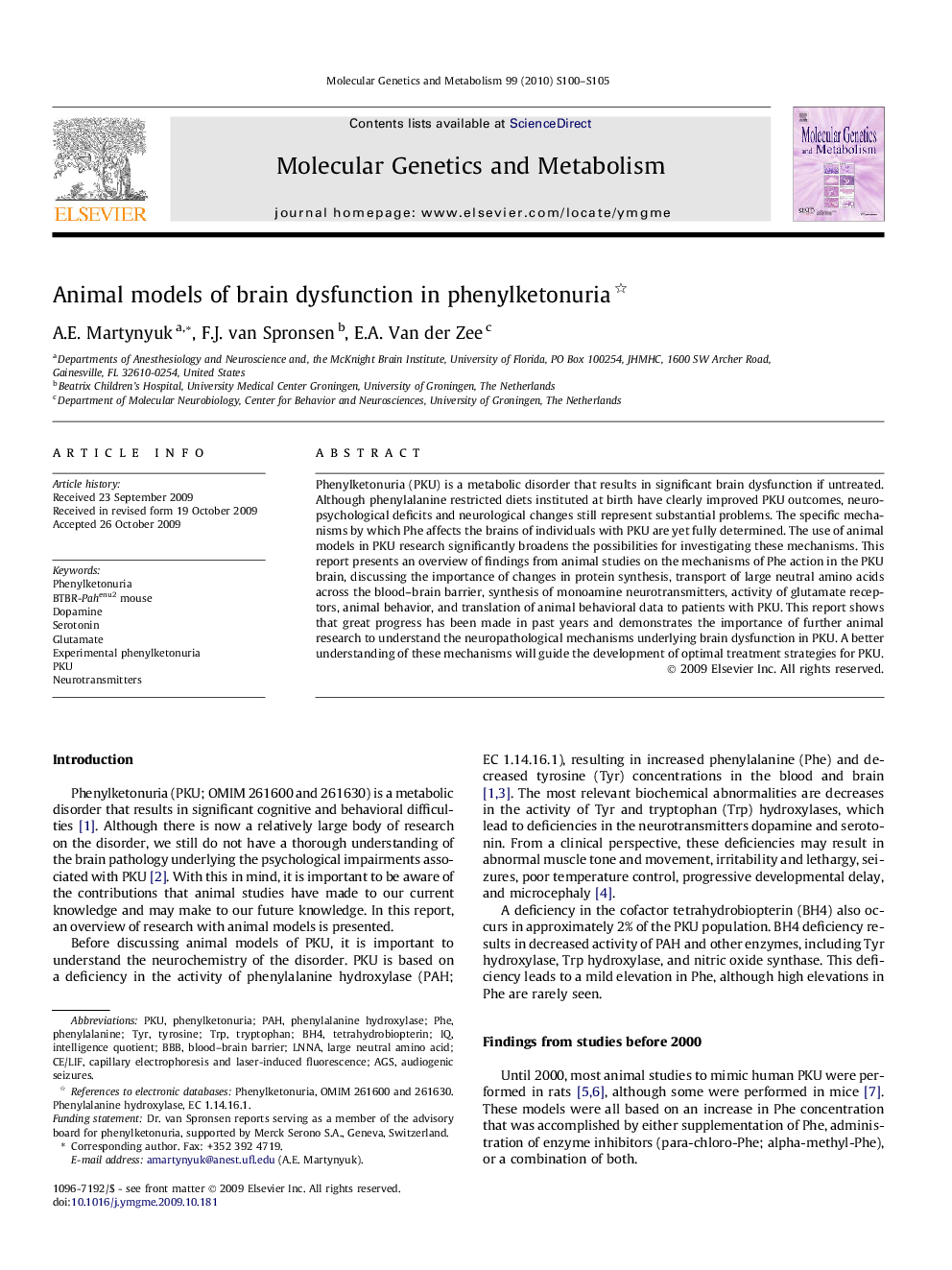| Article ID | Journal | Published Year | Pages | File Type |
|---|---|---|---|---|
| 1999643 | Molecular Genetics and Metabolism | 2010 | 6 Pages |
Phenylketonuria (PKU) is a metabolic disorder that results in significant brain dysfunction if untreated. Although phenylalanine restricted diets instituted at birth have clearly improved PKU outcomes, neuropsychological deficits and neurological changes still represent substantial problems. The specific mechanisms by which Phe affects the brains of individuals with PKU are yet fully determined. The use of animal models in PKU research significantly broadens the possibilities for investigating these mechanisms. This report presents an overview of findings from animal studies on the mechanisms of Phe action in the PKU brain, discussing the importance of changes in protein synthesis, transport of large neutral amino acids across the blood–brain barrier, synthesis of monoamine neurotransmitters, activity of glutamate receptors, animal behavior, and translation of animal behavioral data to patients with PKU. This report shows that great progress has been made in past years and demonstrates the importance of further animal research to understand the neuropathological mechanisms underlying brain dysfunction in PKU. A better understanding of these mechanisms will guide the development of optimal treatment strategies for PKU.
